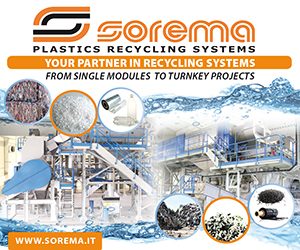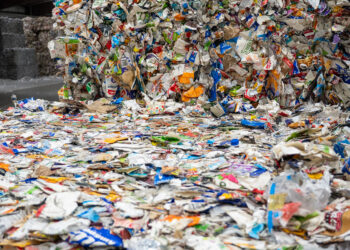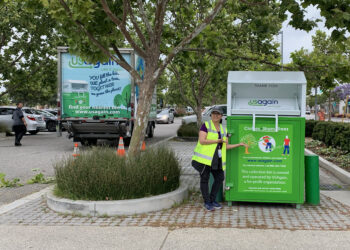A California bill mandating that carpet stewards achieve a 24 percent recycling rate continues to advance in the legislature. Meanwhile, carpet makers are sticking with their beleaguered stewardship group, instead of submitting alternative collection and recycling plans.
Earlier this year, the California Department of Resources Recycling and Recovery (CalRecycle) rejected a proposed carpet recycling plan submitted by the Carpet America Recovery Effort (CARE), an industry stewardship group. CalRecycle also fined CARE more than $3 million, alleging that its efforts in prior years fell short of state requirements. CARE is appealing the fine.
Among other accusations, CalRecycle staff say CARE has failed to bring about meaningful improvements in carpet recycling. In 2016, the carpet recycling rate sat at 11 percent, short of CARE’s goal of 16 percent. Recycling carpet face fiber, the upper part consumers regularly touch, can yield post-consumer nylon, nylon 6,6, PET/PTT and PP.
In its 2016 program report, CARE said it has “set mechanisms in motion to ensure continuous and meaningful improvement today and well into the future.” The first quarter of 2017 showed a 16 percent recycled output, CARE noted.
Legislation advances
The situation has caught the attention of state lawmakers.
Under California’s unique extended producer responsibility system for carpet, CARE manages money generated by fees consumers pay when buying new carpet. Those fees generate millions of dollars per year.
The authors of Assembly Bill 1158 cited the use of consumer fees as one of the justifications for their bill. The legislation requires a carpet stewardship plan to achieve a 24 percent recycling rate for post-consumer carpet by 2020. It also puts limits on how CARE can use the consumer fees, prohibiting their expenditure for legal fees, for example.
The bill establishes an advisory committee and paves the way for minimum-recycled-content standards in state agency carpet procurements.
AB 1158 was approved by the State Assembly on May 30 in a 73-2 vote, and it is now under consideration in the Senate.
Sticking with CARE
Meanwhile, as part of its enforcement efforts, CalRecycle gave carpet manufacturers until Aug. 15 to indicate whether they wanted to continue their membership in CARE or submit alternative carpet recycling plans.
A handful of manufacturers have indicated they’re out of business or will otherwise stop selling carpet in California. But all of those that responded by deadline and plan to continue selling carpet in the state indicated they will stick with CARE, according to CalRecycle. Their responses were obtained by Plastics Recycling Update via a public records request (other companies that had not been contacted by CalRecycle also submitted responses indicating they’ll continue their membership in CARE).
CARE is now working on a revised plan, which it must submit by an Oct. 19 deadline. A decision by CalRecycle would then be expected by the end of the year.































